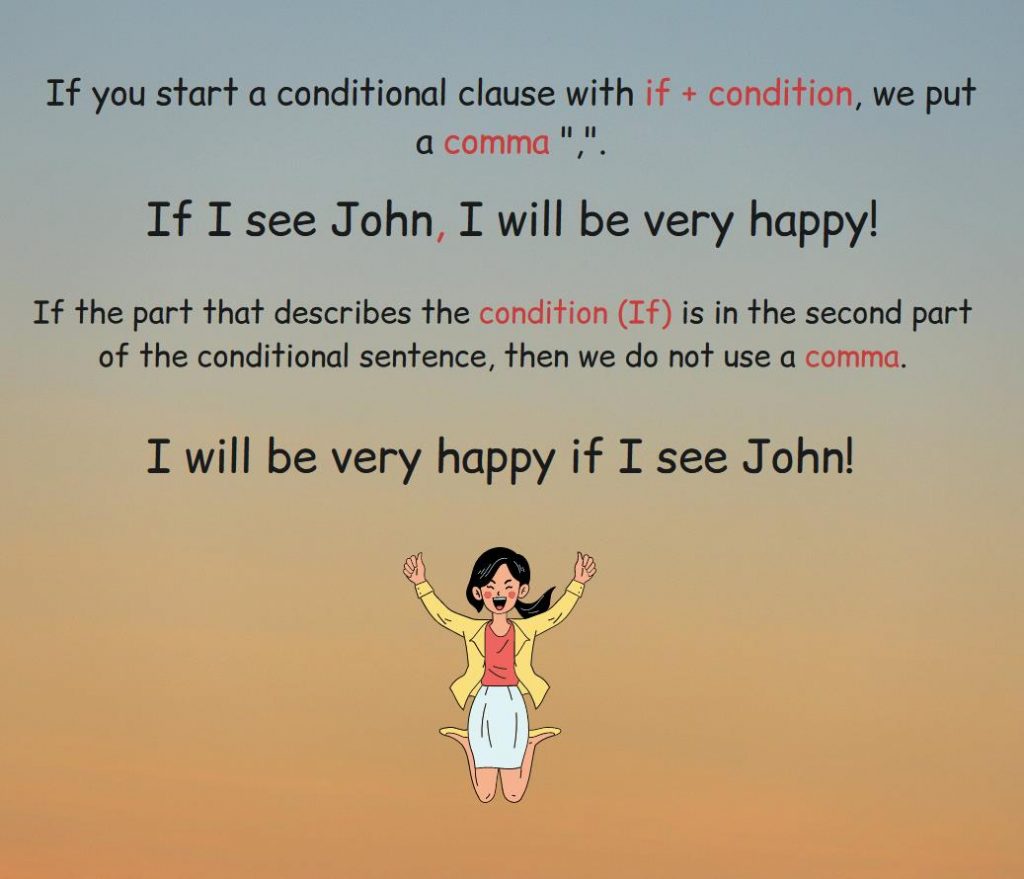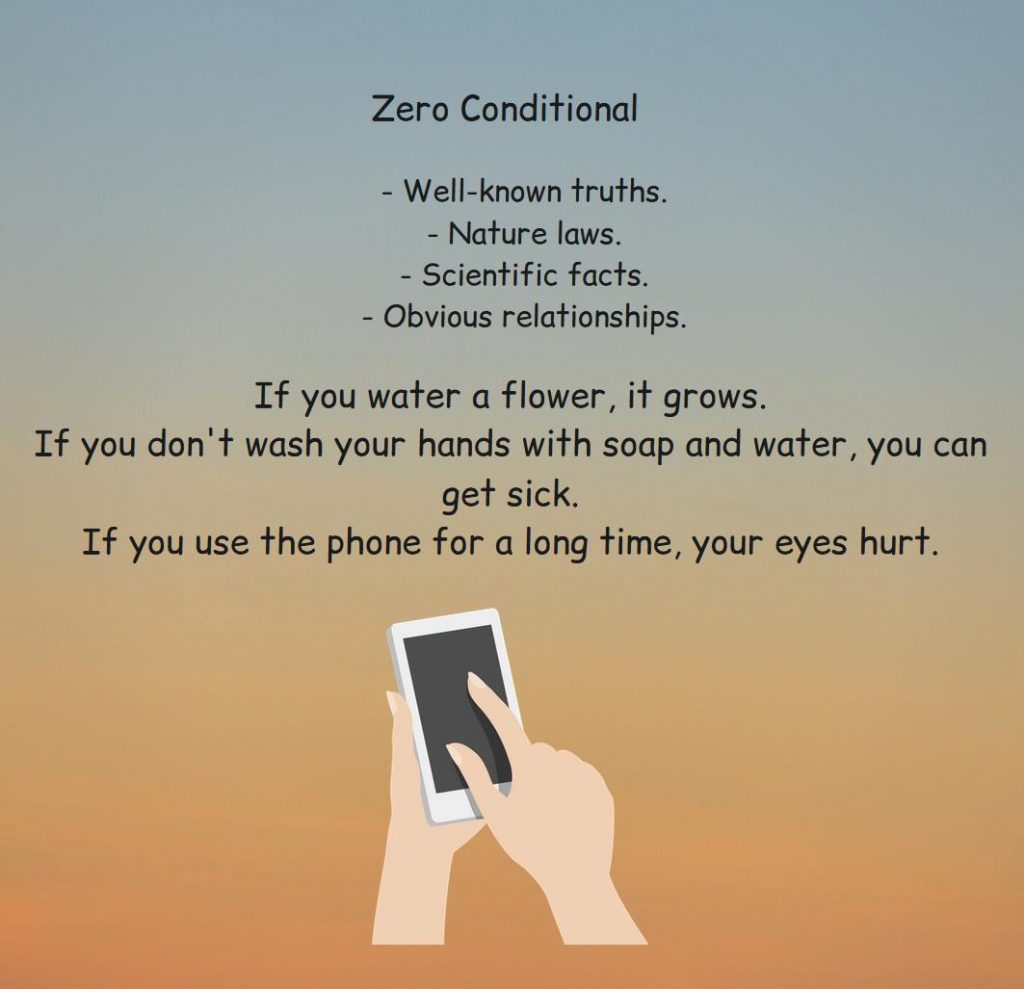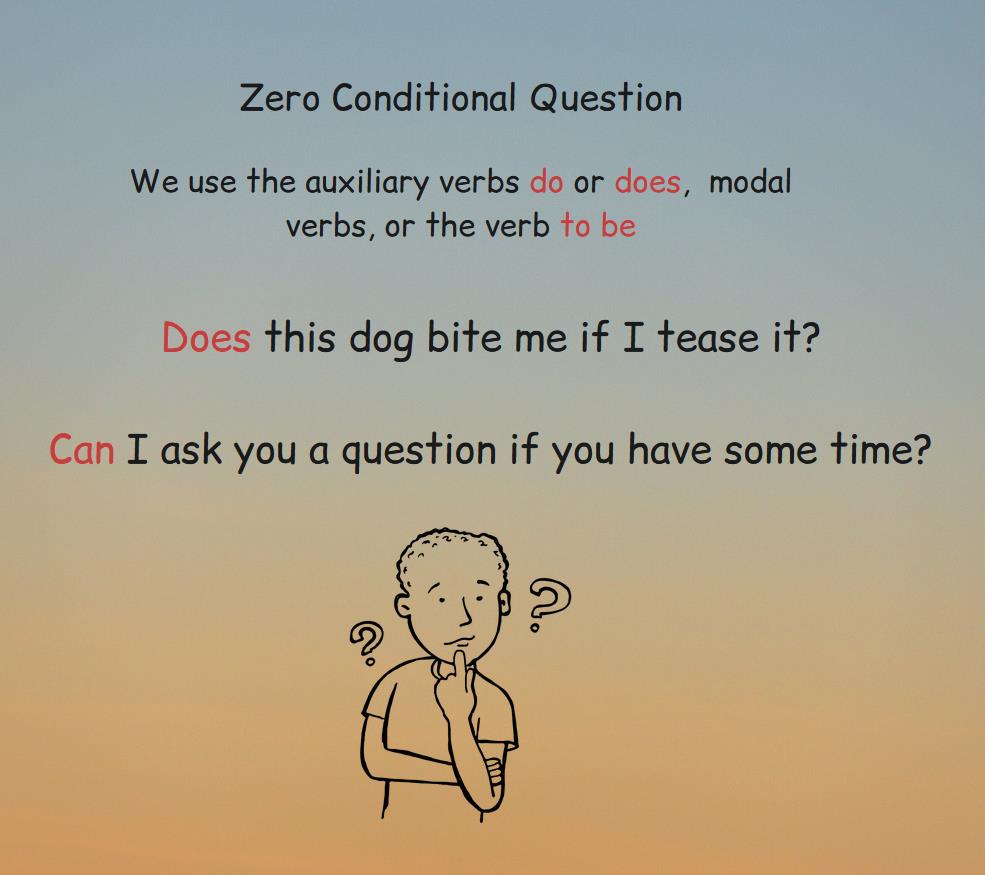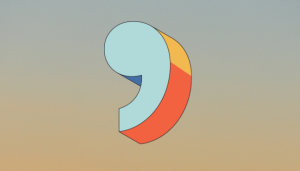The zero conditional clauses are the simplest type of conditional clause in the English language. This type of sentence is very easy to understand, learn, and start using.
English learners start learning conditional sentences from the zero type. By learning the zero type, it will be easier for you to understand all the other, more complex types of conditional clauses.
Zero Conditional, like any other conditionals, consists of the main clause and the subordinate clause.
If I get angry I lose concentration.
We will form these parts according to this formula:
{If + Present Simple} comma {Present Simple}
If I am healthy (condition), I am happy (result).
The order in which we use these two parts in Zero Conditional does not matter (in other types of conditional clauses it does not matter either). The main thing to remember is that we use the word if at the beginning of the part in which we report the condition.
Mom scolds me if I am late.
Rule Of Comma In Conditional Clauses
This is an important rule that we apply to all types of conditional sentences in English.
If you start a conditional clause with a condition (the part that starts with If), then after the condition we put a comma “,”.
If I see John, I will be very happy!
If the part that describes the condition (If) is in the second part of the conditional sentence, then we do not use a comma.
I will be very happy if I see John!

Using Present Continuous And Present Perfect In Zero Conditional
We use the present simple in both parts of Zero Conditional for a reason. Remember that we use the present simple when we talk about obvious things, laws of nature, known truths to all. Zero Conditional is also used to express obvious things. This is why the present simple suits Zero Conditional so well.
However, remember that if you want to emphasize the duration of the process in one of the parts of Zero Conditional, you can replace the present simple with the present continuous.
If you are running in the park, beware of dogs!
Moreover, we can even use the present perfect in Zero Conditional. We use the present perfect when we want to highlight the completeness of an action.
Example:
If you have noticed the enemies, hit the bell!

Using “When” Instead Of “If”
In all four types of conditional clauses, we must use the word if before the part that contains the condition.
But Zero Conditional is a bit of a special case.
We can use the word when instead of the word if.
Because we use Zero Conditional to communicate obvious concepts, laws of nature, patterns, etc. The word when does not violate the essence of the conditional clause in such cases. On the contrary, it sometimes emphasizes the regularity of the condition and the result.
You can burn yourself if you drink very hot tea.
You can burn yourself when you drink very hot tea.If it rains I take an umbrella.
When it rains I take an umbrella.

Modal Verbs In Zero Conditional
In the first part of Zero Conditional, in which we talk about the condition (If, When), we can use modal verbs.
Most often used for this:
- May
- Can
- Should
- Must
In such cases, modal verbs additionally express the likelihood of an action.
If you can read my mind, then you already know.
If you can swallow a spoonful of cinnamon, you win.

What We Use Zero Conditional For?
The main purpose of Zero Conditional is to make obvious statements about common truths and facts.
We use Zero Conditional to express a condition and result that is real and possible.
Therefore, we often use Zero Conditional in such cases as:
- Irrefutable facts and truths
- Instructions and guides
Zero Conditional And Irrefutable Facts
One of the main uses of Zero Conditional is when we talk about hard facts.
We use Zero Conditional in this case to say:
- Well-known truths.
- Nature laws.
- Scientific facts.
- Obvious relationships.
What we are talking about is obvious to everyone. This is not our truth. This is a generally accepted truth.
If you water a flower, it grows.
If you don’t wash your hands with soap and water, you can get sick.
If you use the phone for a long time, your eyes hurt.

Instructions Or Guidelines
With Zero Conditional we can give instructions, telling what to do in certain situations.
If the light comes on, press the Enter button.
If water flows, close the valve to the left.
Zero Conditional For Describing Habits
We can use Zero Conditional to describe habits and regular, repetitive actions.
In this case, we just change if to Every time.
Every time underlines the fact that we are talking about regular actions.
Every time I see you, I rejoice.
Every time I come home late, I go to bed right away.
Interrogative Sentences In Zero Conditional
We can shape the first part of Zero Conditional into a question. Such a question is formed according to all the rules for forming questions in English.
Since we are using the present simple in Zero Conditional we use the auxiliary verbs do or does to form the question.
If in the first part we use a modal verb or the verb to be, then we form a question by putting such a verb in the first place before the subject.
Does this dog bite me if I tease it?
Can I ask you a question if you have some time?

Imperative In Zero Conditional
If we use Zero Conditional to give advice, instruction, or guidance, we can use the imperative.
If you start running, run fast!
If you see him again, be careful!
If the boss is here, get out of here.
Some logic Of Zero Conditional
When using Zero Conditional, you must understand that Zero Conditional does not imply the likelihood that something will happen. Zero Conditional is a statement of fact.
When we talk:
If a baby falls, it cries.
We don’t just assume that if a baby falls, it cries. We KNOW that if a baby falls, it cries. And we communicate this as an obvious truth to all.
This is why we can safely replace if with when.
When a baby falls, it cries.
Hello! If you would like to thank me for the articles I wrote, you can click Buy me a coffee. Thank you! ❤❤❤









